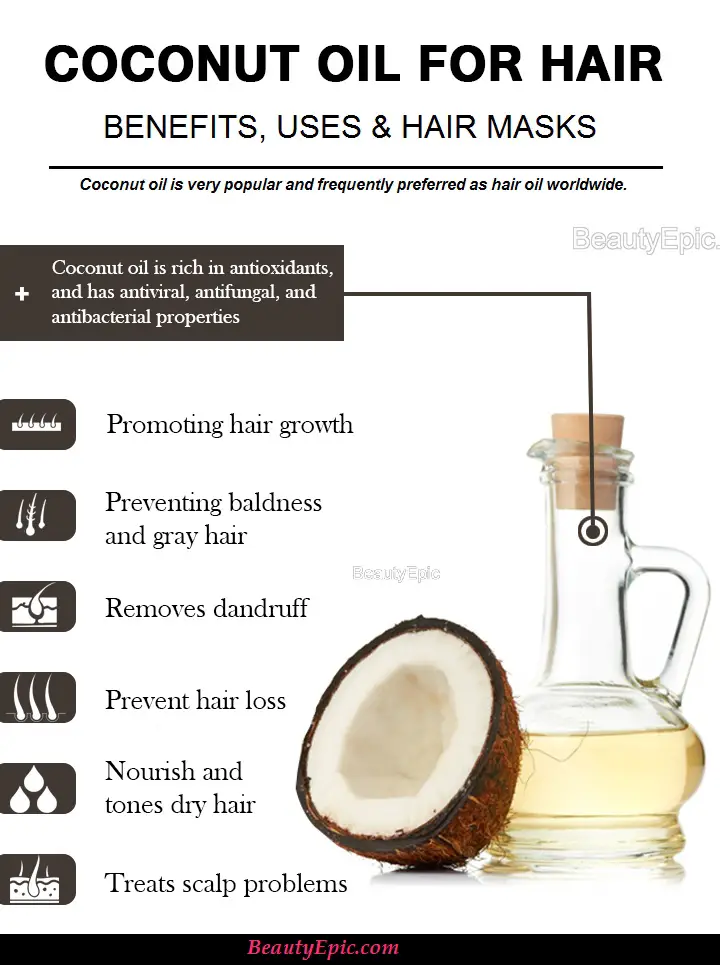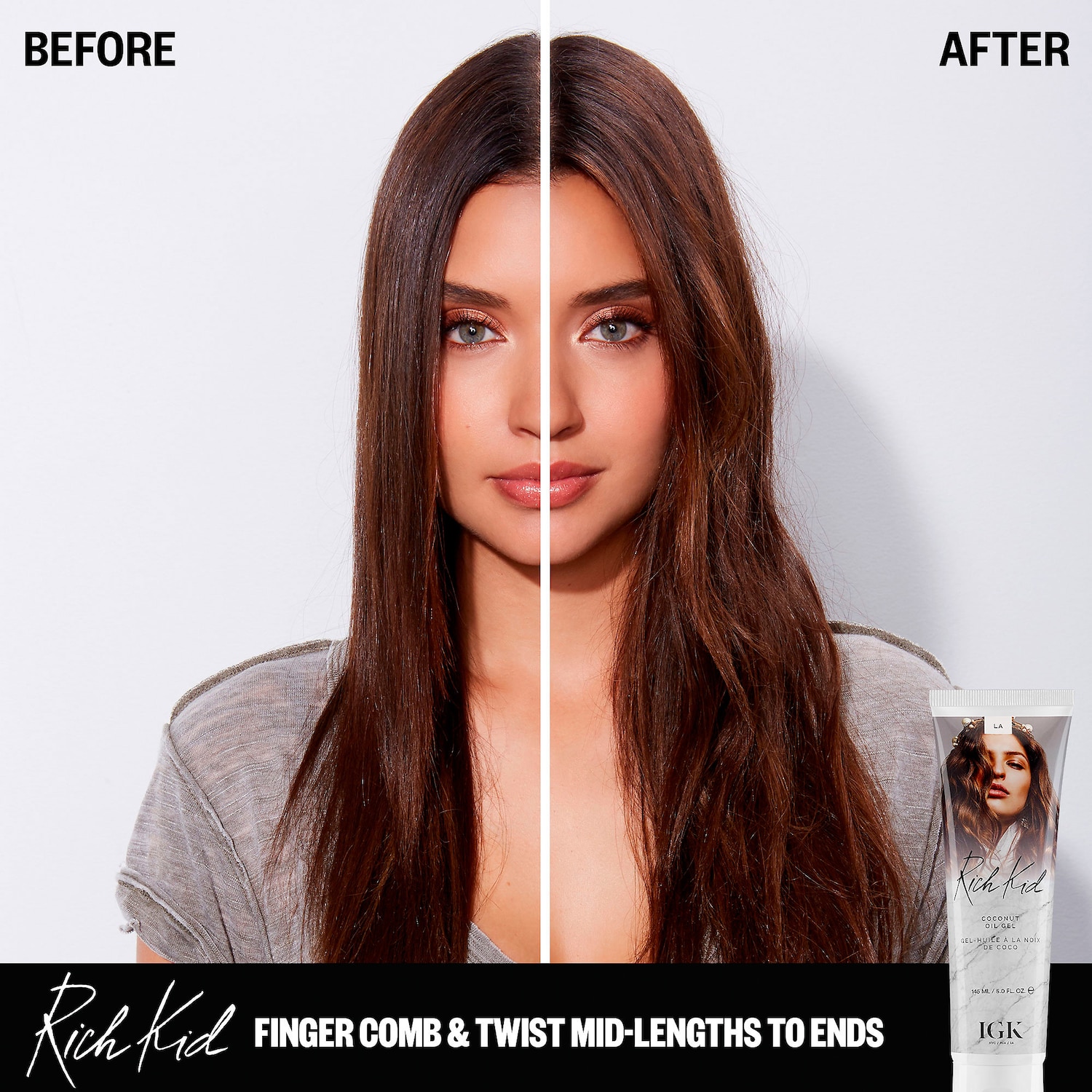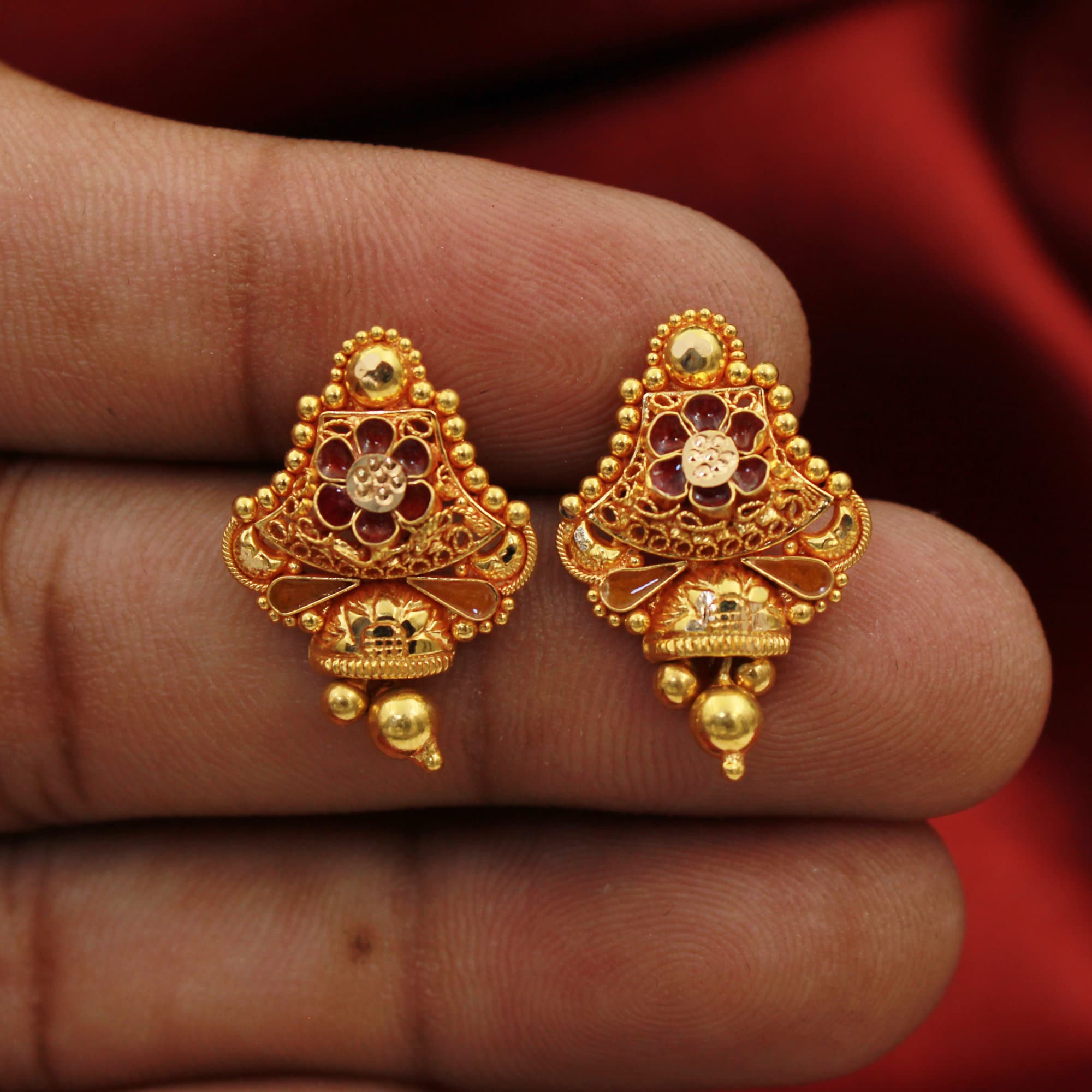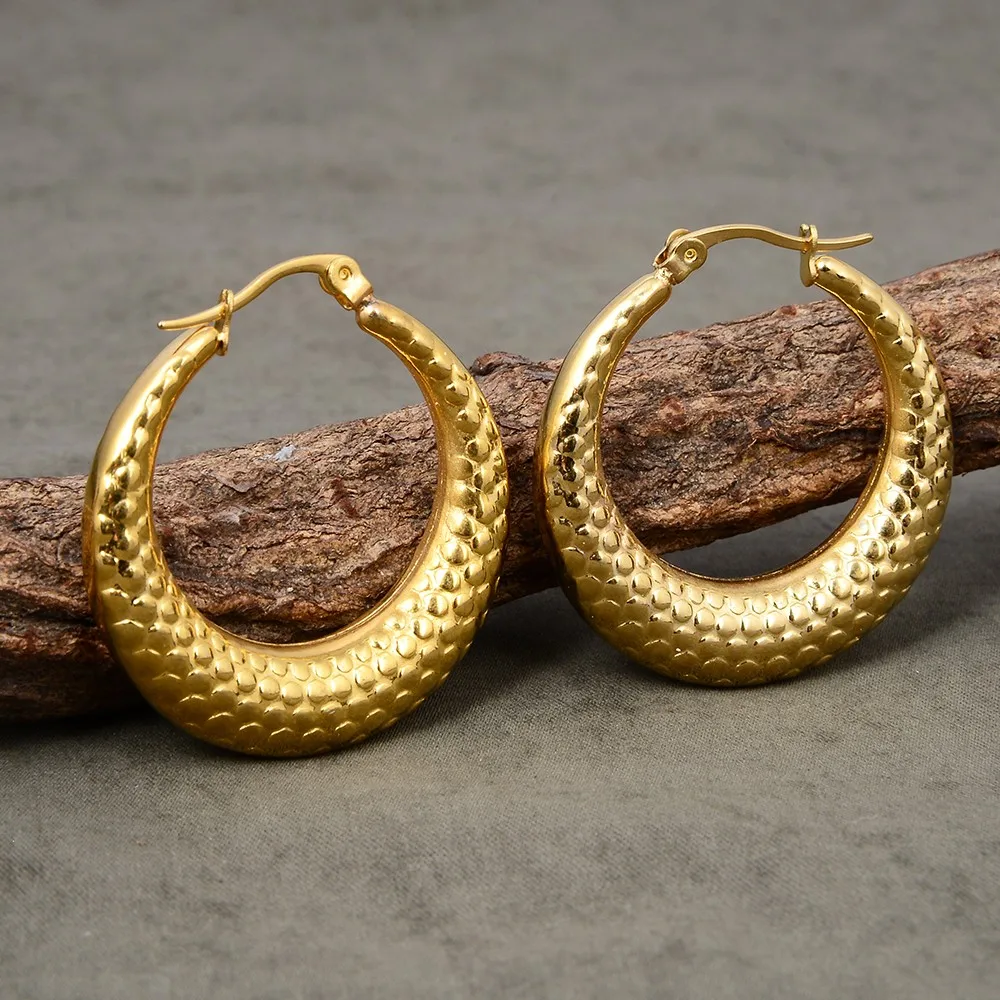Table Of Content

Eating coconut oil might give you healthier, faster growing hair. You might notice a difference especially if you aren’t getting enough natural fats and other nutrients in your diet. Up to 30 percent of your daily calories should come from healthy fats.
Scalp Treatment
Combining coconut oil with other nourishing ingredients will give your hair added moisture. Try adding yogurt or avocado to the oil to make the hair mask even more nourishing. Due to its moisturizing properties, applying coconut oil to your hair will help add and retain moisture. It absorbs quickly into your hair and effectively penetrates the hair shaft, notes Koestline. This fatty acid plus vitamins in coconut oil will help your hair shine brighter. Coconut oil also strengthens your strands, and healthy hair equals shiny hair.
Coconut Oil vs. Other Oils
When you open the jar, the aroma should remind you of fresh coconuts. If you don’t get that refreshing coconut aroma, then the oil may be refined and overly processed. It's lightweight, smells amazing, and perfect for remedying post-summertime damage from chlorine and saltwater. Looking to mask those split ends in the way our experts described?
Fable & Mane HoliRoots Hair Growth Oil & Scalp Oil Treatment
This type of fat is a “bad” fat for your diet, but it gives coconut oil firmness not found in other oils. In fact, coconut oil is solid at room temperature, and it begins to melt at around 78 degrees Fahrenheit. One of the most preferred ways to use coconut oil, however, is as a hair treatment.
The Best Raw Coconut Oils
The 9 Best Hair Oil For Men in 2024) - FashionBeans
The 9 Best Hair Oil For Men in .
Posted: Tue, 19 Mar 2024 07:00:00 GMT [source]
It helps to moisturise your hair, and to prevent dandruff, and is gentle on your scalp. Most coconut oil is made from natural ingredients, meaning it tends to be safe for sensitive scalps and is less likely to cause irritation. If you have damaged hair due to environmental stressors such as the sun and smoke pollution, applying coconut oil can be a great place to start. It “penetrates the hair shaft and protects the hair from protein loss to reduce hair damage,” says Dr. Michele Green, a board-certified cosmetic dermatologist in New York City. It is a highly nourishing oil with hundreds of uses, and lately I’ve run across many sources touting the benefits of coconut oil for hair. It can certainly be beneficial for certain hair types when used correctly, but many sources recommend using it in ways that may do more harm than good.
Alvarez agrees, adding that incorporating coconut oil into your routine creates an optimal environment for hair growth. "The vitamins and essential fatty acids also help to remove sebum build-up from hair follicles, which speeds up growth," she explains. They confirmed that, yes, coconut oil can help hair health in a number of ways. While it's important to start small with this oil (as with all oils) and augment as needed, with the right balance, coconut oil is bound to bring your hair from sad to glad in no time. Read on for our guide on using coconut oil, the ways coconut oil can benefit your hair, and the coconut oil-infused hair products to add to your shopping cart ASAP. There are many coconut oil-infused hair products on the market, from shampoos to conditioners to leave-in treatments to styling creams.
Coconut Oil for Your Hair: Benefits, Uses, and Tips
Coconut oil can weigh down fine hair and make it appear limp, flat, and greasy. This study also sized up the effects of mineral oil and sunflower oil on hair. Olive oil is a diverse ingredient you can incorporate into your hair care routine, ranging from taming flyaways to traditional hair oiling. Iman Balagam is a beauty contributor at Cosmopolitan with nearly four years of experience writing beauty stories that range from curling irons to collagen for hair growth. She’s an authority in all categories, but is an expert when it comes to hair oiling, thanks to years of personally researching and testing different hair oils to grow her thick hair. The thing that bugs me the most about a lot of hair oils on the market is that they are often too heavy and hard to wash out.

This causes you to lose some of the fibrous proteins that make up your hair’s cortex, making your hair thin, fragile and prone to breakage (1, 2). Washing, styling, and coloring your hair can damage the cuticle, making it unable to protect the central parts of the hair shaft. Cold-pressed products are a good choice because these oils do not use heat or chemicals for extraction. However, there’s some concern that repeated use of coconut oil may lead to hair stiffness for those with coarse hair textures. This curl-quenching conditioner infuses curls with rich hydration, softens, strengthens, and encourages definition. Coconut oil is a safe and effective sunscreen for children and adults alike.

Other benefits of coconut oil for hair
The review indicates that coconut was the only oil that reduced protein loss compared to sunflower oil and mineral oil in an older 2003 study on both damaged and undamaged hair. Dry, itchy scalps and flakey dandruff are common issues often solved with shampoos heavy in chemicals. “Coconut oil is great for repairing the skin’s natural moisture barrier, which is beneficial for those experiencing dandruff or dry, itchy scalps,” Green says. Hair doesn’t have the ability to digest or metabolize coconut oil like the digestive system does. For this reason, try eating coconut oil instead of putting it on your hair for the most benefit.
This helps prevent you from using too much oil, which can result in a greasy effect. Smooth your palms over the top of your hair and then use a bristle boar brush to further smooth and disperse the oils further down the hair shaft. You can use coconut oil to wash your face like any other face wash, rubbing it over your face and then letting it sit for a few minutes before washing it off with a warm, wet cloth. As well as being used on hair, coconut oil is frequently used on skin and offers a range of benefits.
One of the best ways to pamper your hair with coconut oil is by making and applying a hair mask. You can make one easily using basic ingredients that you likely already have in your kitchen. When the mixture is cool enough to work with, apply the mask to dry or damp hair in sections, evenly covering each section from root to tip. A person should take care not to use too much as this make the hair appear greasy, but smoothing a little oil on the hands and applying lightly after styling the hair can add gloss and reduce any frizz.
Start with a teaspoon and add more if necessary when trying any of the following ideas. Virgin coconut oil is also rich in polyphenols, which gives it protective antioxidant properties, notes Koestline. This is another way that coconut oil helps reduce skin inflammation. It's common to see the ends of your hair breaking (or splitting)—especially if you have long hair. The lauric acid in coconut oil can help prevent split ends from happening, as well as heal existing split ends. Applying coconut oil to hair is all about finding what works best for you, a process that will likely involve some trial and error.
And you don't just have to take their word for it—a study from the National Library of Medicine found that coconut oil is able to penetrate the shaft of hair strands and, ultimately, prevent hair damage. Atopic dermatitis may have a link to premature hair loss, according to a 2018 study, so a coconut oil mask may also be suitable for a person who has thinning hair. This is because of its low molecular weight and straight linear chain structure, which reduces the protein loss for both undamaged and damaged hair. Coconut oil’s properties allow it to penetrate hair in ways that other oils are not able to, which is why some people notice amazing results relatively quickly when using coconut oil for hair.
Similar to a pre-shampoo treatment, Justin recommends using coconut oil before showering. For this type of treatment, heat the coconut oil in the microwave for about 30 seconds. “You want the oil to become soft, but not too runny or hot for an easy and straightforward application,” Justin explains. Then, apply the oil to your hands and gently massage into the hair and scalp before wrapping the hair in a shower cap for 30 minutes or longer. Applying coconut oil to your hair and/or scalp before shampooing is one of Dr. Luke’s recommended methods. “You can massage coconut oil into your scalp (if you have a dry, flaky scalp) or apply coconut oil to your strands prior to washing,” she explains.
When ingested, lauric acid can contribute to bad cholesterol levels in your bloodstream. When applied to your skin, lauric acid has antimicrobial properties. If you have an open wound, coconut oil helps to kill bacteria, preventing them from causing further damage. As far as DIY hair treatments go, coconut oil is at the top of our ingredient list. Few natural oils have similar reparative and moisturizing properties as coconut oil does, which has earned it a cult status amongst the natural and clean beauty communities. What's more, you don't need to buy products with coconut oil in it, you can go straight to the source and slather on pure coconut oil straight from the jar.




















